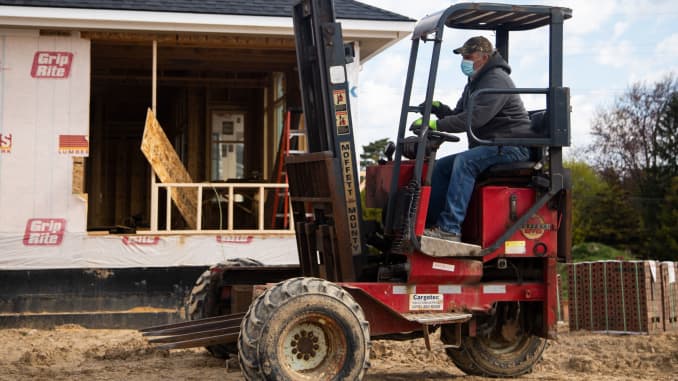The Urethane Blog
Everchem Updates
VOLUME XXI
September 14, 2023
Everchem’s exclusive Closers Only Club is reserved for only the highest caliber brass-baller salesmen in the chemical industry. Watch the hype video and be introduced to the top of the league: — read more
July 15, 2020
Chemours to close First Chemical Pascagoula plant by end of the year
PASCAGOULA, Miss. (WLOX) – Chemours has announced that it will close its First Chemical plant in Pascagoula at the end of this year.
A statement released by Monday by Chemours reads:
The First Chemical site in Pascagoula has been a valuable part of Chemours through its manufacturing of aniline, nitrobenzene and NDPA lube antioxidant. As a result of a business review we determined that aniline business is not core to our future strategy and we have made the difficult decision to exit the business and cease production at the site by the end of this year. We value every employee and the customers they serve, and we will support them through this time of transition.
The First Chemical plant, a Chemours company, was established in 1967 as Mississippi’s first chemical company. The plant is located in the Bayou Cassotte Industrial Park in Jackson County.
The Jackson County Economic Development Foundation said they will work closely with Chemours real estate department to redevelop the property. “They will enthusiastically engage with us in redeveloping that property,” said George Freeland, executive director of the foundation.
He also noted that “they have been an extraordinary industrial partner.”
According to Freeland, 74 employees were affected and each will receive a severance package.
The plant is a leading producer of aniline intermediates and derivatives as well as nitrobenzene. These chemicals are the key ingredients in many everyday items, including pharmaceuticals, automotive parts, tires, dyes, photochemicals, agricultural chemicals, and building materials.
The First Chemical Corporation has four independent operating units in the contiguous facility. The four units include: the Port Facility Unit (Aniline Production), the Nitration #1 Unit, Nitration #2 Unit, and the Hydrogenation Units #1 and #2.
In 2009, the plant was ordered to pay $731,000 in civil penalties to the federal government after an explosion in 2002 that left two people injured.
https://www.wlox.com/2020/07/06/chemours-close-first-chemical-pascagoula-plant/
July 15, 2020
Chemours to close First Chemical Pascagoula plant by end of the year
PASCAGOULA, Miss. (WLOX) – Chemours has announced that it will close its First Chemical plant in Pascagoula at the end of this year.
A statement released by Monday by Chemours reads:
The First Chemical site in Pascagoula has been a valuable part of Chemours through its manufacturing of aniline, nitrobenzene and NDPA lube antioxidant. As a result of a business review we determined that aniline business is not core to our future strategy and we have made the difficult decision to exit the business and cease production at the site by the end of this year. We value every employee and the customers they serve, and we will support them through this time of transition.
The First Chemical plant, a Chemours company, was established in 1967 as Mississippi’s first chemical company. The plant is located in the Bayou Cassotte Industrial Park in Jackson County.
The Jackson County Economic Development Foundation said they will work closely with Chemours real estate department to redevelop the property. “They will enthusiastically engage with us in redeveloping that property,” said George Freeland, executive director of the foundation.
He also noted that “they have been an extraordinary industrial partner.”
According to Freeland, 74 employees were affected and each will receive a severance package.
The plant is a leading producer of aniline intermediates and derivatives as well as nitrobenzene. These chemicals are the key ingredients in many everyday items, including pharmaceuticals, automotive parts, tires, dyes, photochemicals, agricultural chemicals, and building materials.
The First Chemical Corporation has four independent operating units in the contiguous facility. The four units include: the Port Facility Unit (Aniline Production), the Nitration #1 Unit, Nitration #2 Unit, and the Hydrogenation Units #1 and #2.
In 2009, the plant was ordered to pay $731,000 in civil penalties to the federal government after an explosion in 2002 that left two people injured.
https://www.wlox.com/2020/07/06/chemours-close-first-chemical-pascagoula-plant/
July 14, 2020

ICIS acquires Chemical Data Dear
We wanted to let you know about an exciting development at ICIS that could unlock new opportunities for you in a rapidly changing and uncertain marketplace. As of today, ICIS has acquired Chemical Data, LLC (CDI), a leading provider of US petrochemical price benchmarks, market analysis, and predictive analytics, powered by a team of industry experts with extensive experience.
For decades, ICIS has delivered comprehensive insight to the chemical and energy industries globally. CDI enhances our US coverage with access to one of the leading sources of US pricing intelligence, market analysis, and forecasting, deepening our market relationships and industry network. Together we will deliver deeper and comprehensive insight across the global chemical and plastics value chain when it is needed the most.
The acquisition enhances ICIS’ ability to deliver global price benchmark data, analytics and thought leadership that is established, trusted and differentiated by providing an even greater focus on US markets. This news demonstrates our joint commitment to supporting the chemical industry to make better informed decisions and brings significant benefits to our industry. Together our combined business will deliver: Access to the industry’s most comprehensive view of the global chemicals industry, which now includes a leading provider of US chemical intelligence delivered by a highly experienced team across both ICIS and CDI. Recognised price benchmarks in the US adding to complementary price benchmarks provided by ICIS in European and Asian markets. Even stronger global content and capabilities through the combination of CDI’s expertise and deep market connections in the US with ICIS’ global reach in dynamic international markets. Comprehensive analytical and consulting capabilities in both the US and global markets to identify future trends and regional dependencies. Deeper understanding of US segments, especially polymers, supported by deep market connections and strong brand recognition to deliver intelligence with trust and credibility. 
At ICIS, our team is committed to ensuring we partner with you to deliver the intelligence you require to make trusted, timely and critical business decisions when you need it the most, both now and in the future. Because only together, we can shape the future of the chemical industry.
To ensure your decisions are based on the best information available, please get in touch: clientsuccess@icis.com 
Dean Curtis President and CEO, ICIS
July 14, 2020

ICIS acquires Chemical Data Dear
We wanted to let you know about an exciting development at ICIS that could unlock new opportunities for you in a rapidly changing and uncertain marketplace. As of today, ICIS has acquired Chemical Data, LLC (CDI), a leading provider of US petrochemical price benchmarks, market analysis, and predictive analytics, powered by a team of industry experts with extensive experience.
For decades, ICIS has delivered comprehensive insight to the chemical and energy industries globally. CDI enhances our US coverage with access to one of the leading sources of US pricing intelligence, market analysis, and forecasting, deepening our market relationships and industry network. Together we will deliver deeper and comprehensive insight across the global chemical and plastics value chain when it is needed the most.
The acquisition enhances ICIS’ ability to deliver global price benchmark data, analytics and thought leadership that is established, trusted and differentiated by providing an even greater focus on US markets. This news demonstrates our joint commitment to supporting the chemical industry to make better informed decisions and brings significant benefits to our industry. Together our combined business will deliver: Access to the industry’s most comprehensive view of the global chemicals industry, which now includes a leading provider of US chemical intelligence delivered by a highly experienced team across both ICIS and CDI. Recognised price benchmarks in the US adding to complementary price benchmarks provided by ICIS in European and Asian markets. Even stronger global content and capabilities through the combination of CDI’s expertise and deep market connections in the US with ICIS’ global reach in dynamic international markets. Comprehensive analytical and consulting capabilities in both the US and global markets to identify future trends and regional dependencies. Deeper understanding of US segments, especially polymers, supported by deep market connections and strong brand recognition to deliver intelligence with trust and credibility. 
At ICIS, our team is committed to ensuring we partner with you to deliver the intelligence you require to make trusted, timely and critical business decisions when you need it the most, both now and in the future. Because only together, we can shape the future of the chemical industry.
To ensure your decisions are based on the best information available, please get in touch: clientsuccess@icis.com 
Dean Curtis President and CEO, ICIS
July 13, 2020
Homebuilders just saw the strongest June sales since the last housing boom, as pandemic pushes more buyers to the suburbs
Published Mon, Jul 13 202011:24 AM EDTUpdated 5 Hours AgoDiana Olick@in/dianaolick@DianaOlickCNBC@DianaOlickwatch nowVIDEO10:03Home prices in urban areas may suffer, economist Robert Shiller saysKey Points
- Sales of newly built homes jumped 55% annually in June, according to a monthly survey by John Burns Real Estate Consulting, which has historically mirrored the U.S. Census report.
- It was the largest annual gain since homebuilding began again following the epic housing crash a decade ago. It is also the highest pace since the height of the unprecedented housing boom in 2005.

A construction worker wearing a protective mask moves bricks to the back of a house as they resume construction on a home in Bloomfield Hills, Michigan, May 7, 2020.Emily Elconin | Bloomberg via Getty Images
It is the perfect storm for the nation’s homebuilders. A sharp decline in the supply of existing homes for sale, increasing consumer preference for brand-new, high-tech homes with all the amenities for working and schooling, as well as an accelerating flight to the suburbs and exurbs made for remarkable housing demand in June.
While the official government count isn’t out until the end of the month, sales of newly built homes jumped 55% annually in June, according to a monthly survey by John Burns Real Estate Consulting, which has historically mirrored the U.S. Census report. It was the largest annual gain since homebuilding began again following the epic housing crash a decade ago.
It is also the highest pace of sales growth since the height of the unprecedented housing boom in 2005. That expansion was driven by negligent lending in the subprime mortgage market. This boom appears to be driven by the coronavirus pandemic.
“The anecdotal evidence is overwhelming. Sales in the distant commuter areas are the most robust,” said John Burns, founder and CEO of JBRC. “I believe a lot of computer-oriented people have proven to their co-workers that they can be productive from home, and have sensed, or officially been given the green light, to work from home at least a significant portion of the time after a vaccine has been found.”
That sentiment was mirrored in a survey by Arizona-based builder Taylor Morrison, which reported a 94% annual jump in June home sales. High-tech homes, and additional rooms for working and home schooling, topped the list of consumer demands.
“There is a bias to new. When I look at the research that our teams have been doing over the last 12 to 14 weeks, people are quoting, they want new, fresh, a place where wellness features will really make sense for them,” said Sheryl Palmer, CEO of Taylor Morrison recently in an interview on CNBC’s “Closing Bell.” “Most recently, we’re really seeing a pickup in folks saying they want more rural or suburban locations. Initially, there was a lot of talk about that, but it’s really coming through our buyers today.”
Sales of new homes were strongest in the Northeast, with an 86% annual jump, and in Florida, where sales popped 84%, according to JBRC. California saw gains, but it was the laggard.
Those sales are allowing builders to raise prices. About 57% of those surveyed said they had bumped prices higher, only in California did prices pull back some. About 14% of Southern California builders reduced net prices in June, the most of any region. Nationally, home prices for new construction in June were 4.5% higher annually.
Builders can raise prices because they are seeing a new buyer today, more serious and more impatient than ever. Buyer traffic is converting into sales at a record rate. In addition, consumers are largely choosing homes already built, even in the luxury segment. That is why the inventory of unsold, newly built homes dropped 20% annually in June to just a 1.5-month supply.
The issue for builders now is how to ramp up production quickly, when they never expected this kind of recovery. Most builders stopped buying land in March and laid off workers. Now they need more communities but are up against all kinds of hurdles, including high prices for finished lots and issues with local permitting offices which are not all open or running normally yet.
Land developers will benefit, as community counts are now 5% lower than a year ago. There is, of course, the Covid-19 wild card: If the economy shuts down yet again, and unemployment rises, the prospects for housing strength continuing into the fall will weaken. Record low mortgage rates are certainly helping, but at some point, buyers will inevitably hit their price limit. Already, in the high-priced existing home market, there are signs that demand is pulling back.

